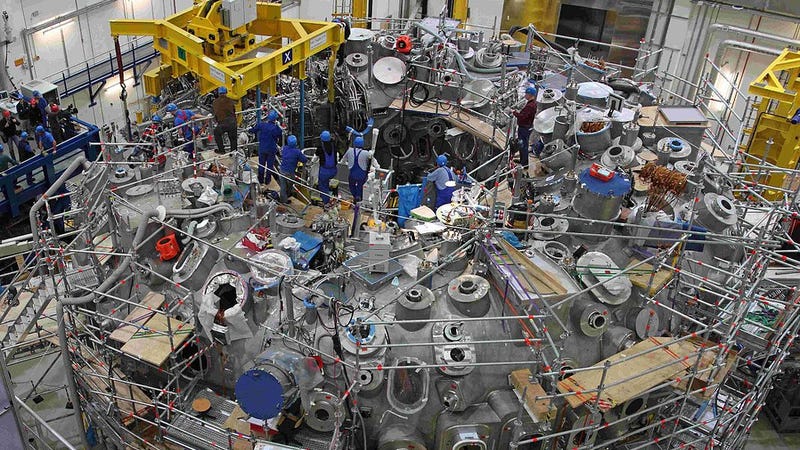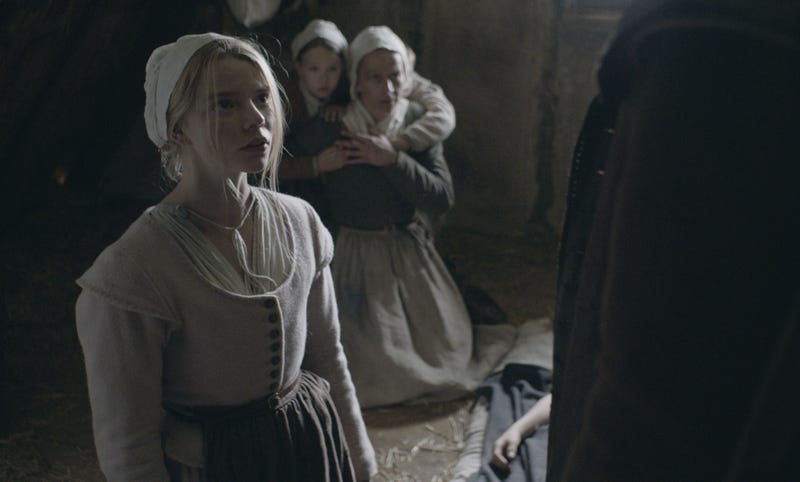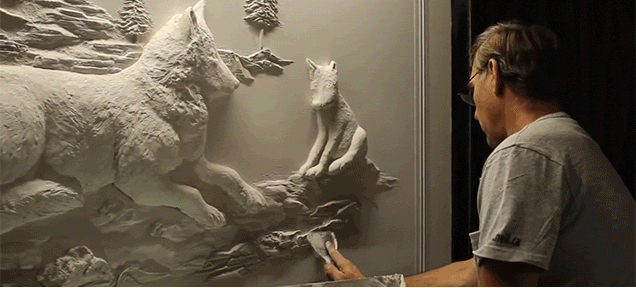![Brian Michael Bendis on the Evolution of Ultimate Spider-Man, Miles Morales]()
Ever since Miles Morales took the role of Spider-Man over from Peter Parker, he’s had to fight his supervillain uncle, he’s seen his entire universe get destroyed, and he’s become one of the most prominent heroes in Marvel’s push for diversity. But now that he’s joined the main Marvel universe in his new series, writer Brian Michael Bendis has even bigger plans for the Ultimate Spider-Man.
These plans start today in Spider-Man #1—note the lack of “ultimate” before it—from Bendis and artist Sara Pichelli. We spoke with the writer about Miles’ creation and evolution, how he’s been changed by Secret Wars, his relationship with Peter Parker, and the huge role he’ll play in Bendis’ upcoming Civil War II event this summer.
http://io9.gizmodo.com/marvels-civil-...
Just as a warning, there’s some mild spoilers for the first issue in the interview below. If you’ve not read your copy yet, you might want to tread lightly.
io9: Ultimate Spider-Man took a bit of a break just before Secret Wars started last May. What’s it like coming back to Miles, and then bringing him to the main Marvel universe?
Brian Michael Bendis: It’s been great. Truthfully, behind the scenes there’s been no break. I’ve been working on the book constantly since 1999 [laughs]. The experience never goes away. The only difference is that I had, at one point, resigned from the book. I was like “Oh, Miles is gonna come to the proper Marvel universe, I guess I’ll tip my yarmulke and bow out,” and ride out into the sunset thinking we’d taken [Miles Morales] much farther than we’d ever thought we would be able to.
What I didn’t know at the time was how much real estate there is for Miles in this universe. I didn’t know he was going to be on Mark Waid’s Avengers team. I didn’t know Dan Slott’s plans for Peter Parker that would basically need someone like Miles to take the more traditional Spider-Man role in the Marvel Universe. These things we so exciting, and there were so many story ideas that we were at a Marvel retreat—which is when we all get together in New York, and talk about our stuff—and I turned to Axel [Alonso, Marvel’s Editor-in-Chief] and said “I didn’t know what was happening, I’m not sure I want to leave the book!” and he said “Yeah, we didn’t think you were. We didn’t make plans, we thought you were staying!”
It was Axel who said [Marvel] were hoping that it would be you and Sara [Pichelli, artist and Miles Morales’ co-creator] back on the book together, after having created him. Sara and I had some other plans going, but we wrote her and said “Hey, here’s what’s happening,” and I knew just from our back-and-forth just how proud she was of Miles and her place in his creation. So I was like “Let’s get the family back together, we had a baby, lets go get our baby and put him out there!”
It was the right choice. I didn’t want to leave the book, I thought I guess I should, you know what I mean? But once you’ve got a bunch of stories to tell, it’s very hard to come up with a reason to leave anything.
![Brian Michael Bendis on the Evolution of Ultimate Spider-Man, Miles Morales]()
io9: How has Secret Wars and the destruction of the Ultimate Universe and changed Miles—not just as a hero, but as a person?
Bendis: That’s absolutely the reason to buy the book as far as I’m concerned. We had a lot of discussions about what Miles has witnessed, how it affected and changed him. He’s a young man who has survived and positively affected a very big Marvel event. These events do change these characters, their outlook and sometimes their status quo almost completely. Here’s this young man who probably can’t even verbalize how it has changed him, but we can show you how it did. So when we open the book—whether you’ve read Secret Wars or not, it doesn’t matter—you’re gonna see a young man completely overwhelmed by all of the responsibility in front of him, having trouble balancing the elements of his life like most young people—and most people!—do. What we’re going to discover is that it’s extremely hard to sit in class and be Miles Morales, when you know you the effect you have on things as Spider-Man. Miles doesn’t understand that without Miles, Spider-Man is a disaster.
It that balance, and he’s going to have to learn the hard way, modern times being what they are and how much our society has shifted in so many ways. It’s going to be an interesting look at a very traditional Spider-Man challenge, in a very modern setting, with a very different character.
![Brian Michael Bendis on the Evolution of Ultimate Spider-Man, Miles Morales]()
io9: In the first issue, Miles is struggling with school—he’s skipping class to be Spider-Man, which now includes being an Avenger as well. Will his being part of that team impact his solo comic?
Bendis: Absolutely. It’s one of the great joys of having a character join a team, that now they have different people in their lives. The difference between the last volume [of Ultimate Spider-Man] and this volume is that he has his friends, Ganke and everyone in his year, but now he’s friends with Kamala Khan and Sam [Alexander, Nova], and they bring all kinds of stuff with them into the relationship.
There’s just more things pulling at him than before—the responsibilities of being an Avenger and feeling “Holy shit, you can’t say no to being an Avenger, but oh my god, I’m an Avenger!” [It’s about] not feeling worthy of that until you realise that maybe [you are], and the fact that not feeling worthy is what makes you worthy. I think, without spoiling anything, the Avengers are front and center in this issue, and people have seen Kamala on the cover of issue three, so there’s an ongoing concern. It’s the big question: what is Miles’ role in the Marvel Universe going to be? We get right into it. There’s quite a few things but one of the most interesting is what is his relationship with these other heroes, how do they perceive him? It’s big stuff.
io9: Now that Miles has his own legacy in the Marvel Universe, what are you looking forward to exploring?
Bendis: Quite a few things. Number one, it just so happens that I’ll be showrunner/architect of Marvel’s next big summer event, which is Civil War II. Miles will be a big part of that, and the outcome of that series will effect Miles dramatically. Being able to control that is exciting—[it’s the] same thing for Tony [Stark] by the way, and the Guardians of the Galaxy. They’re not the only pieces being affected, but those are the big ones. It will allow us to differentiate between Miles and Peter in a very large way, and that’s very exciting.
Number two is in this first storyline, even that first image of the book, you see Miles’ costume is torn—you know, as is the way with superheroes, especially Spider-Man. His brown skin [is] revealed to the public. It’s going to change the conversation about Miles to part of the public, much like it does in real life, and that’s going to be brought up in the series for the first time. It’s been something that people have always asked about when Race was going to come into [Miles’ story], and it will come into it, but it’s not all that the book is about. It’ll come into it. Not with the heaviest of hands—two of my children are of color, and I see when it comes in very clearly and how subtlety it comes in—[but] I’ve been waiting for the moment to open that door, and this is that moment.
![Brian Michael Bendis on the Evolution of Ultimate Spider-Man, Miles Morales]()
io9: What’s it been like getting back into the swing of things with artist Sara Pichelli (no pun intended)?
Bendis: Well, Sara and I have been working together constantly since [Ultimate Spider-Man], just on other projects. We did Guardians of the Galaxy together, we did some X-Men together, she had to take some time off for personal stuff, but we’ve been always involved. We were actually going to cook up some other projects before this idea came to us.
What was interesting about this, and a very unique experience—and I’m talking for Sara, but I know this to be true—I know she’s immensely proud of creating Miles. That’s what was very exciting. But what she didn’t get right away but got as soon as she started drawing is “Oh my god, I’m coming back to this character who has completely evolved since his creation.” When he was created, he was 13 years old. Now he’s closer to 16—that is literally the difference between man and boy, child and adult, it’s a huge change. All the characters have physically changed, and [Sara] has also evolved as an artist, so it’s a very interesting experience for her to come back to something she invented and yet have to, like, find her way into it. I think she does it amazingly well. For someone who’s such a process junkie, and so into the creative experience, I just started applauding. “Oh, this is exciting!” [laughs]
Anything that is a different creative experience, and though it may seem fully fluid to the people reading it, and it should. Behind the scenes, it was a very interesting puzzle for her to solve.
![Brian Michael Bendis on the Evolution of Ultimate Spider-Man, Miles Morales]()
io9: Like you said, in comic books it’s a very rare opportunity to see a character evolve like that. Most characters tend to be relatively static.
Bendis: Or they’re Bart Simpson and they never age!
io9: Yeah! Has that evolution—both in terms of the character and his place in comics culture—impacted how you look at Miles heading into this new series?
Bendis: I don’t know about other people, but all of my psychic wounds from that time period [of being a teen] are still very fresh. We had a lot of talks about this when we first put Miles on the scene, the decision to make him younger than Ultimate Peter Parker was very specific. What’s scarier than being 15 having spider-powers? Being 13 and having spider-powers.
Because I’m Jewish, when we grow up they say at 13 “and now you’re a man, it’s Bar Mitzvah time!” and I went [Bendis adopts the squeakiest pitch he can] “I’m a man!?, I’m not a man!” It’s a very weird thing to have put on someone, but it made me think about how, all over the world, people are forced to grow up before they’re ready, and I wanted the book to be about that. We did that [on Ultimate Spider-Man], and I’m very proud of it, but now let’s have this character having survived an event, and time has passed. One of Jonathan [Hickman’s] mechanism for Secret Wars was that eight months have passed twice. A year and a half has gone by, and that’s the world to someone Miles’ age. Let’s see where he’s at, and he’s in a big disaster! [laughs]
When you’re 13 and people say, “Grow up, you’re 13!” you’re like [squeaky pitch] “Err, okay!” but when you’re 16, you’re like “I’m grown up, I know everything!” Especially when someone has seen what Miles has seen, he’s seen some stuff, experienced some things, I don’t know if he’s processed all of it. And we’re going to get into that in an interesting way. Plus, I don’t want to forget the fact that he’s dressing up as Spider-Man. So not only is he rising to the challenge of being a superhero, he’s part of a legacy, and that legacy has its own problems. It’s got a lot of good stuff, and a lot of bad stuff. The bad stuff is going to take the form of a lot of Spidey villains who can’t necessarily get their hands on Peter Parker anymore, so they’re gonna be gunning for Miles before Miles becomes as big a problem as Peter was to them.
![Brian Michael Bendis on the Evolution of Ultimate Spider-Man, Miles Morales]()
io9: Speaking of Peter, he’s off being a CEO now in Amazing Spider-Man. How much of a role will he play in the series? What will his relationship with Miles be like?
Bendis: Miles and this Peter Parker have met before in a project Sara and I did together called Spider-Men, which we’re very proud of, and was a very emotional experience for us. I had a choice here from a story perspective: I could hold off on when we see Peter in this book, and trickle that out, or I could just get right to it. I always think that when people are holding stuff off, they stalling, and I didn’t feel like there was any need to stall. In the eight months of Secret Wars, they haven’t seen each other. This is the first time [Peter and Miles] have seen each other. I think this is going to be one of the top 10 reasons people pick up the book, to find out what’s the deal with these two. You’re gonna find out what the deal is, and then we’ll move forward.
It’s not like Peter’s gonna show up in every issue, but when he does show up, it’s going to be for big things… and [issue #1] is a big thing.
io9: Miles has developed into quite an icon for fans. What do you hope people take from this first issue and going forward in Spider-Man?
Bendis: I hope they take from it what we intend, which is that they open it up and go “Holy crap, Sara Pichelli is like, one of the best comic book artists on the planet!” And then they start reading it and realize that Miles is a fully formed character—in flux, but formed. I think what people respond to the most about Miles and his relationship with the world and his friends is the details, the small stuff that is hard to describe in an interview like this.
When we do interviews we talk about diversity, we talk about his place, we talk about the Spider-Man legacy—and those are big things in the book, but the book is really a character piece, and a character piece is all in those details. That’s the stuff that, when people who don’t read Miles hear people who do read Miles jump up and down about [him], that’s what they’re talking about. I hope that all of Miles’ appearance in places, including the toy store shelves, get people to open it up, dig in and sit with him for a while, and get to know him as well as we do. I’ve got so much out of this experience that it truly is one of the great joys of my life, and that’s why going back to what I said earlier that I don’t want to leave, because I know that we’re in a position to [introduce Miles to more people]. How on earth could you walk away from that experience?
What is interesting is that the response to [Miles], just from the cartoons or whatever, is just… in so many reasons, he should not have worked. Peter Parker’s not broken. There’s nothing wrong with Peter, but here’s this other thing we want to do. The response to that has been so overwhelmingly positive from older fans and younger fans… I can’t tell you what a wonderful, heartwarming experience it is to hear from people about Miles every day. It’s amazing.
Spider-Man #1 is available today, February 3rd.
Image Credits: Ultimate End #5 by Brian Michael Bendis, Scott Hanna, Mark Bagley, Justin Ponsor and Cory Petit, Spider-Man #1 by Brian Michael Bendis, Sara Pichelli, and Justin Ponsor, and Secret Wars #9 by Jonathan Hickman, Esad Ribic, Ive Svorcina, and Clayton Cowles.






















































